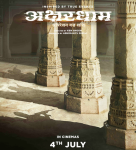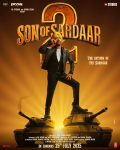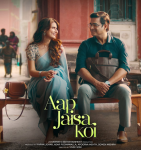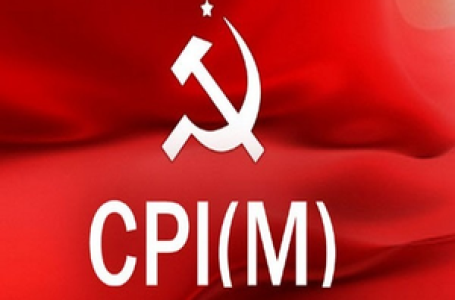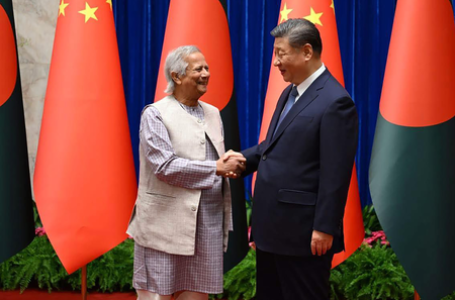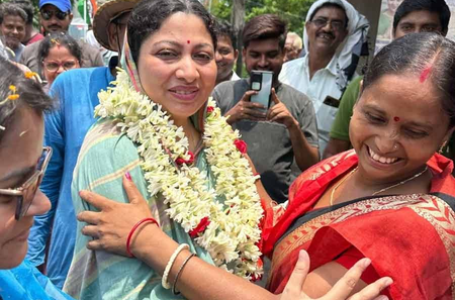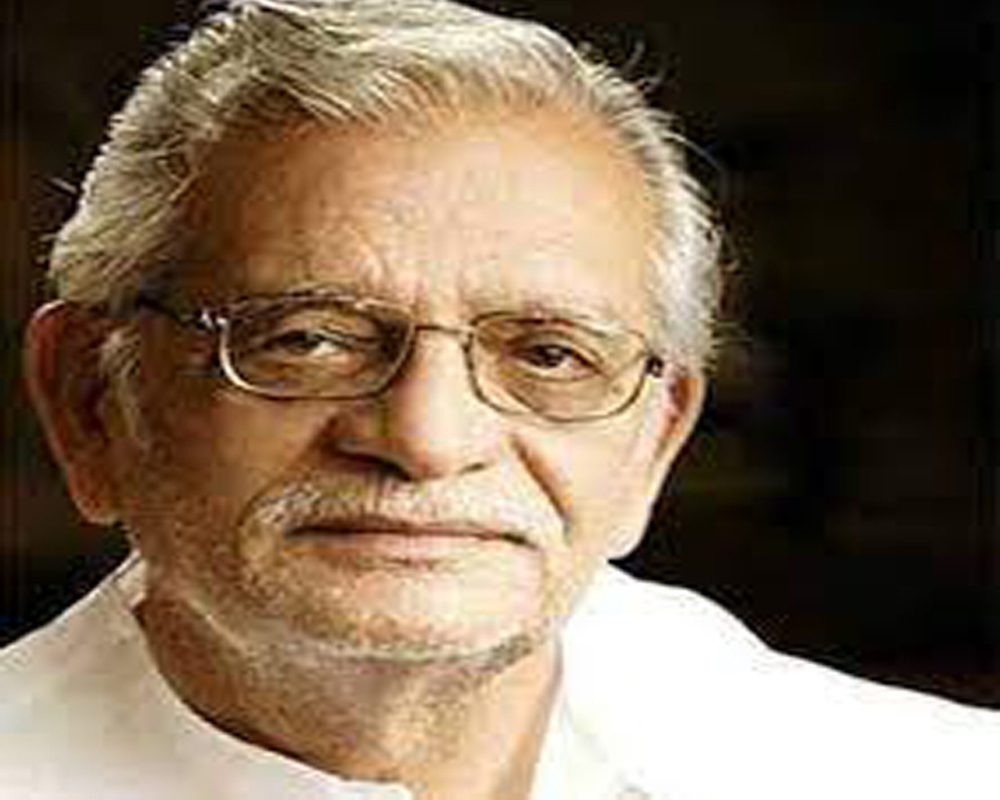
 |
Mora gora ang layi le, mohe shyam rang dayi de
Kho jaungi raat hi mein, mohe pee ka sang dayi de…
This song, one of the evergreen lyrics of old Hindi films, was penned by a young man working in a motor garage in Mumbai. And can you imagine this was his first ever lyric!
That was Sampooran Singh Kalra aka Gulzar, who was born on August 18, 1934 in Dina town of Jhelum district, now in Pakistan. After India’s Partition in 1947, his family shifted to Delhi from where he was later sent to Bombay to live with his elder brother.
His family wanted him to join business, but the young Gulzar wanted to read books. From a book stall, he would take Urdu novels on rent. The stall owner would charge 25 paise per week.
“I started with thrillers. I used to finish a novel overnight and the next morning, I would reach the book stall again for another novel. After a few days, the stall owner was irritated. He said he couldn’t give me a new novel every day on a paltry rent of Rs 25 paise per week. That day, he didn’t let me pick up a thriller. He deliberately handed me a book of Tagore poems to read. In that moment, he didn’t know he is changing the direction of my life,” Gulzar said in Anupam Kher’s popular TV show ‘Kuchh bhi ho sakta hai’.
Thereafter, reading of literature became a passion for Gulzar. While continuing his studies, he worked in a motor garage where he could earn some money and spare some time to read books.
As his interest grew in literature and arts, Gulzar got associated with Progressive Writers’ Association (PGA) and Indian People’s Theatre Association (IPTA) where he met people from the world of letters, theatre and films.
BANDINI, THE BEGINNING
When Gulzar started writing poetry, one of his acquaintances took him to eminent director Bimal Roy, who was making the movie ‘Bandini’ at that time. Bimal Da reluctantly sent him to his music director S. D. Burman, who was in need of a lyricist as he had fallen out with Shailendra.
Burman Da gave Gulzar a tune to write a song for a particular situation in the film. After five days, the young poet came up with ‘Mora gora ang layi le’ that became a popular number after it was sung by Lata Mangeshkar and picturized on Nutan in the film.
Meanwhile, Burman Da later had a patch-up with Shailendra and he refused to get the remaining songs of ‘Bandini’ (1963) penned by a newbie like Gulzar.
Bimal Da felt bad about Gulzar and offered him the role of his assistant director, saying film is primarily the director’s medium. Soon after starting his innings as a lyricist, Gulzar was now exposed to the art of direction, which helped him become an outstanding director in his later years. In this write-up, however, I will focus on his role as a lyricist.
‘HUMNE DEKHI HAI UN AANKHO KI…’
He later came in touch with Hrishikesh Mukherjee and wrote the dialogues and lyrics of Ashirwad (1968).
However, Gulzar got famous as a lyricist with Rajesh Khanna-Vaheeda Rehman starrer Khamoshi (1969) in which he gave three immortal songs. These were ‘Humne dekhi hai un aankho ki mehkati khusboo’ (sung by Lata Mangeshkar), ‘Tum pukar lo, tumhara intezaar hai’ (Hemant Kumar) and ‘Wo shaam kuchh ajeeb thi, ye shaam bhi ajeeb hai’ (Kishore Kumar).
‘Humne dekhi hai un aankho ki mehkati khusboo’ reflected his deep understanding of not only human emotions, but also the finesse and subtlety of literary expression.
In 1971, he gave hit songs such as ‘Maine tere liye hi saat rang ke sapne chune’ in ‘Anand’, ‘Bole re papihra’ in ‘Guddi, and ‘Koyi hota jisko apna, hum apna keh lete, yaaro’ in ‘Mere Apne’, the latter being his first film as a director.
In Jitendra-Jaya Bhaduri starrer Parichay (1972), which again he directed himself, two of his songs — Musafir hun yaaro and ‘Beeti na bitayee raina’ — became immensely popular.
In his Mausam (1975), Gulzar penned yet another of his haunting songs ‘Dil dhoondta hai phir vahi phursat ke raat din’ that was immortalized by Bhupinder in his baritone voice.
‘TERE BINA ZINDAGI SE KOYI’
In Aandhi (1975), his own directorial venture, Gulzar again penned memorable melodies such as ‘Tere bina zindagi se koyi shikwa to nahin’, ‘Tum aa gaye ho, noor aa gaya hai’ and ‘Is mod se jaate hain”.
In Masoom (1983), directed by Shekhar Kapoor, he came up with lovely songs, including ‘Tujhse naraaz nahin zindagi, hairaan hun main’ and ‘Do naina, ik kahani’ and ‘Huzur is qadr bhi na itra ke chaliye’, besides ‘Lakdi ki kathi, kathi pe ghoda’ that became an all-time favourite number among children.
‘MERA KUCHH SAMAAN’
Gulzar won the national film award for best lyric with his ‘Mera kuchh samaan’ in ‘Ijaazat’ (1987), a wonderful movie with a love triangle, starring Naseeruddin Shah, Rekha and Anuradha Patel. This film was also directed by him.
Besides SD Burman, Gulzar penned songs for top music directors Salil Chowdhury, Madan Mohan, Hemant Kumar, Shanker-Jaikishan, Rajesh Roshan and RD Burman.
More recently, he teamed up with contemporary music directors, including Vishal Bhardwaj, A.R. Rehman and Shanker-Ehsaan-Loy.
With Vishal Bhardwaj, he gave hit songs such as ‘Chhod aaye hum wo galian’ and ‘Chappa chappa charkha chale’ in Maachis (1996).
‘CHHAIYA-CHHAIYA’ BECAME A RAGE
A peppy lyric by Gulzar in ‘Chhaiya-Chhaiya’ (1998), composed by A. R. Rehman, from Mani Ratnam’s ‘Dil Se’ attained a cult status among music lovers. Sung by Sukhwinder and Sapna Awasthi, the song was picturized on Sharukh Khan and Malaika Arora. Gulzar again received the Filmfare’s best lyricist award for this lyric.
GULZAR’S SUPERHIT ITEM SONGS
Moving with the times, Gulzar never lost the pulse of the people. In Abhishek-Bachchan-Rani Mukerji starrer ‘Bunti aur Babli’ (2005), Gulzar peened a lyric for an item number, ‘Kajrare Kajrare, tere kaare kaare naina’.
Composed by Shanker-Ehsaan-Loy and picturised on Amitabh Bachchan, Abhishek and Aishwarya Rai, it became a rage. Gulzar bagged the best lyricist awards by Filmfare and IIFA for this number.
In Omkara (2006), directed by Vishal Bhardwaj, the lyricist again delivered two superhit item numbers ‘Beedi jalai le jigar se piya’ and ‘Namak ishq ka’.
ACADEMY AWARD FOR ‘JAI HO’
For ‘Jai ho’ in Hollywood film ‘Slumdog Millionaire’ (2007), directed by Danny Boyle, Gulzar and Rahman shared the Academy Award for best original song written for a motion picture.
—INDIA NEWS STREAM
—



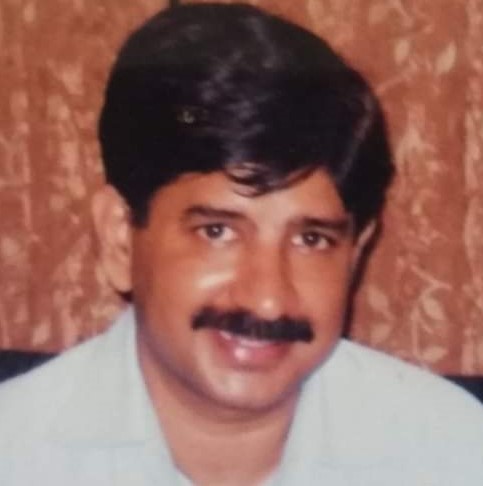 by Manoj Kumar
by Manoj Kumar

